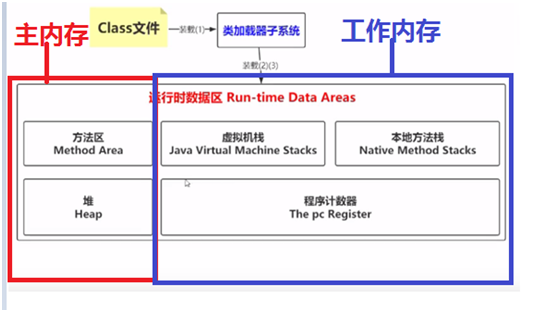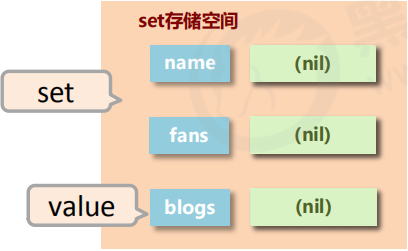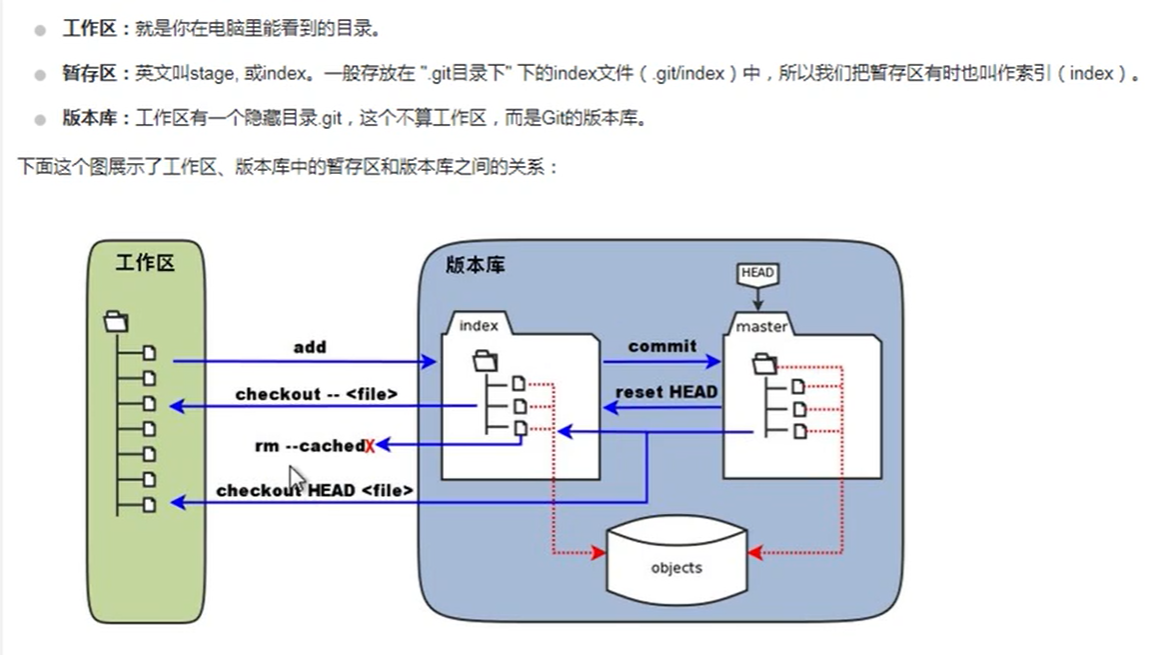2.HotSpot如何加载并解析class文件
文章目录
- 2.1前言
- 2.2 类如何加载
- 第一步:双亲委派加载类,java顶层实现
- 第二步:找到defneClass1的native方法,开始进入JVM源码
- 常量池解析`parse_constant_pool`讲解
2.1前言
class文件在JVM整个生命周期包括了加载、验证、准备、解析、初始化、使用、卸载等7个阶段,Java层面通过ClassLoader.loadClass方法可以手动加载一个java类到虚拟机中,并返回Class类型的引用。
2.2 类如何加载
第一步:双亲委派加载类,java顶层实现
protected Class<?> loadClass(String name, boolean resolve)throws ClassNotFoundException{synchronized (getClassLoadingLock(name)) {// First, check if the class has already been loaded// 首先检查是否这个类已经被加载(后续会讲是如何检查的)Class<?> c = findLoadedClass(name);if (c == null) {long t0 = System.nanoTime();try {//如果当前的ClassLoader的parent!=null,首先让parent进行加载。//如果想多进行了解,可以看双亲委派机制,这样做的目的是什么?if (parent != null) {c = parent.loadClass(name, false);} else {//如果parent则说明当前的parent是bootstrapClassLoader(是由C++实现的,所以为null)c = findBootstrapClassOrNull(name);}} catch (ClassNotFoundException e) {// ClassNotFoundException thrown if class not found// from the non-null parent class loader}// 如果类还是为nullif (c == null) {// If still not found, then invoke findClass in order// to find the class.long t1 = System.nanoTime();// 一般我们继承classLoader 不会重写loadClass方法,不会打破双亲委派机制,一般都会重写findClass方法。c = findClass(name);// this is the defining class loader; record the statssun.misc.PerfCounter.getParentDelegationTime().addTime(t1 - t0);sun.misc.PerfCounter.getFindClassTime().addElapsedTimeFrom(t1);sun.misc.PerfCounter.getFindClasses().increment();}}if (resolve) {resolveClass(c);}return c;}}
在findClass中调用了defineClass,顺着调用链去找,最终调用defineClass1的native方法。
[外链图片转存失败,源站可能有防盗链机制,建议将图片保存下来直接上传(img-aKejPEdO-1591858909752)(/Users/zhangwanyi/Library/Application Support/typora-user-images/image-20200610160840742.png)]
第二步:找到defneClass1的native方法,开始进入JVM源码
NIEXPORT jclass JNICALLJava_java_lang_ClassLoader_defineClass1(JNIEnv *env,jobject loader,jstring name,jbyteArray data,jint offset,jint length,jobject pd,jstring source){//主要的方法,其余的判断赋值等省略result = JVM_DefineClassWithSource(env, utfName, loader, body, length, pd, utfSource);return result;}
JVM_DefineClassWithSource \JVM_DefineClass()\JVM_DefineClassWithSourceCond()统一实现方法:
jvm.cpp::jvm_define_class_common
JVM_ENTRY(jclass, JVM_DefineClassWithSource(JNIEnv *env, const char *name, jobject loader, const jbyte *buf, jsize len, jobject pd, const char *source))JVMWrapper2("JVM_DefineClassWithSource %s", name);//调用 jvm_define_class_common方法return jvm_define_class_common(env, name, loader, buf, len, pd, source, true, THREAD);JVM_END
`jvm.cpp::jvm_define_class_common
static jclass jvm_define_class_common(JNIEnv *env,const char *name , //类名jobject loader, //const jbyte *buf,jsize len, jobject pd, const char *source,jboolean verify, TRAPS) {if (source == NULL) source = "__JVM_DefineClass__";///部分代码省略JavaThread* jt = (JavaThread*) THREAD;if (UsePerfData) {ClassLoader::perf_app_classfile_bytes_read()->inc(len);}// Since exceptions can be thrown, class initialization can take place// if name is NULL no check for class name in .class stream has to be made.// 检查name为null,则可以初始化,因此无需检查.class中的类名TempNewSymbol class_name = NULL;if (name != NULL) {const int str_len = (int)strlen(name);// 检查str_len长度大于(1 << 16)-1 =>65535 主要是全限定名不支持大于65535,超过则 抛出NoClassDefFoundErrorif (str_len > Symbol::max_length()) {// It's impossible to create this class; the name cannot fit// into the constant pool.THROW_MSG_0(vmSymbols::java_lang_NoClassDefFoundError(), name);}// 创建一个Symbol用于存储全限定名class_name = SymbolTable::new_symbol(name, str_len, CHECK_NULL);}ResourceMark rm(THREAD);//类流文件指向source地址,读取相关信息ClassFileStream st((u1*) buf, len, (char *)source);Handle class_loader (THREAD, JNIHandles::resolve(loader));if (UsePerfData) {is_lock_held_by_thread(class_loader,ClassLoader::sync_JVMDefineClassLockFreeCounter(),THREAD);}Handle protection_domain (THREAD, JNIHandles::resolve(pd));//解析类文件并验证 重点方法,并生成Kiass文件Klass* k = SystemDictionary::resolve_from_stream(class_name, class_loader,protection_domain, &st,verify != 0,CHECK_NULL);return (jclass) JNIHandles::make_local(env, k->java_mirror());}
进一步进入 SystemDictionary::resolve_from_stream ,里面最后调用了ClassFileParser::parseClassFile,该方法用于解析class文件,里面代码非常长,我们重点讲解,要有耐心看完!
以下要对class类结构十分熟悉,如果不清楚,请先看文章:
https://blog.csdn.net/qq\_31430665/article/details/106281119 文章讲解《class文件解析,官方直译》
instanceKlassHandle ClassFileParser::parseClassFile(Symbol* name,ClassLoaderData* loader_data,Handle protection_domain,KlassHandle host_klass,GrowableArray<Handle>* cp_patches,TempNewSymbol& parsed_name,bool verify,TRAPS) {JvmtiCachedClassFileData *cached_class_file = NULL;Handle class_loader(THREAD, loader_data->class_loader());bool has_default_methods = false;bool declares_default_methods = false;ResourceMark rm(THREAD);ClassFileStream* cfs = stream();JavaThread* jt = (JavaThread*) THREAD;PerfClassTraceTime ctimer(ClassLoader::perf_class_parse_time(),ClassLoader::perf_class_parse_selftime(),NULL,jt->get_thread_stat()->perf_recursion_counts_addr(),jt->get_thread_stat()->perf_timers_addr(),PerfClassTraceTime::PARSE_CLASS);init_parsed_class_attributes(loader_data);if (JvmtiExport::should_post_class_file_load_hook()) {// Get the cached class file bytes (if any) from the class that// is being redefined or retransformed. We use jvmti_thread_state()// instead of JvmtiThreadState::state_for(jt) so we don't allocate// a JvmtiThreadState any earlier than necessary. This will help// avoid the bug described by 7126851.JvmtiThreadState *state = jt->jvmti_thread_state();if (state != NULL) {KlassHandle *h_class_being_redefined =state->get_class_being_redefined();if (h_class_being_redefined != NULL) {instanceKlassHandle ikh_class_being_redefined =instanceKlassHandle(THREAD, (*h_class_being_redefined)());cached_class_file = ikh_class_being_redefined->get_cached_class_file();}}unsigned char* ptr = cfs->buffer();unsigned char* end_ptr = cfs->buffer() + cfs->length();JvmtiExport::post_class_file_load_hook(name, class_loader(), protection_domain,&ptr, &end_ptr, &cached_class_file);if (ptr != cfs->buffer()) {// JVMTI agent has modified class file data.// Set new class file stream using JVMTI agent modified// class file data.cfs = new ClassFileStream(ptr, end_ptr - ptr, cfs->source());set_stream(cfs);}}_host_klass = host_klass;_cp_patches = cp_patches;instanceKlassHandle nullHandle;// Figure out whether we can skip format checking (matching classic VM behavior)// 是否可以跳过验证,DumpSharedSpaces:共享的Metaspace空间dump到一个文件中if (DumpSharedSpaces) {// verify == true means it's a 'remote' class (i.e., non-boot class)// Verification decision is based on BytecodeVerificationRemote flag// for those classes.// BytecodeVerificationRemote 为 true// BytecodeVerificationLocal 为 false_need_verify = (verify) ? BytecodeVerificationRemote :BytecodeVerificationLocal;} else {// 如果 class_loader==null 或者verify=false 的时候 则不需要验证,即_need_verify=false_need_verify = Verifier::should_verify_for(class_loader(), verify=false 的时候 );}// Set the verify flag in streamcfs->set_verify(_need_verify);// Save the class file name for easier error message printing.// 保存类文件名,以便更轻松地打印错误消息。_class_name = (name != NULL) ? name : vmSymbols::unknown_class_name();cfs->guarantee_more(8, CHECK_(nullHandle)); // magic, major, minor// Magic value// 获取magic 固定值:0xCAFEBABEu4 magic = cfs->get_u4_fast();guarantee_property(magic == JAVA_CLASSFILE_MAGIC,//0xCAFEBABE"Incompatible magic value %u in class file %s",magic, CHECK_(nullHandle));// Version numbers// 获取版本 minor_version=0,暂时没用到这个值// major_version 为jdk版本,如jdk8 表示0X0034->52 jdk7->51 jdk6 ->50 jdk5->49u2 minor_version = cfs->get_u2_fast();u2 major_version = cfs->get_u2_fast();if (DumpSharedSpaces && major_version < JAVA_1_5_VERSION) {ResourceMark rm;warning("Pre JDK 1.5 class not supported by CDS: %u.%u %s",major_version, minor_version, name->as_C_string());Exceptions::fthrow(THREAD_AND_LOCATION,vmSymbols::java_lang_UnsupportedClassVersionError(),"Unsupported major.minor version for dump time %u.%u",major_version,minor_version);}// Check version numbers - we check this even with verifier off// 检查版本,if (!is_supported_version(major_version, minor_version)) {if (name == NULL) {Exceptions::fthrow(THREAD_AND_LOCATION,vmSymbols::java_lang_UnsupportedClassVersionError(),"Unsupported class file version %u.%u, ""this version of the Java Runtime only recognizes class file versions up to %u.%u",major_version,minor_version,JAVA_MAX_SUPPORTED_VERSION,JAVA_MAX_SUPPORTED_MINOR_VERSION);} else {ResourceMark rm(THREAD);Exceptions::fthrow(THREAD_AND_LOCATION,vmSymbols::java_lang_UnsupportedClassVersionError(),"%s has been compiled by a more recent version of the Java Runtime (class file version %u.%u), ""this version of the Java Runtime only recognizes class file versions up to %u.%u",name->as_C_string(),major_version,minor_version,JAVA_MAX_SUPPORTED_VERSION,JAVA_MAX_SUPPORTED_MINOR_VERSION);}return nullHandle;}_major_version = major_version;_minor_version = minor_version;// Check if verification needs to be relaxed for this class file// Do not restrict it to jdk1.0 or jdk1.1 to maintain backward compatibility (4982376)// 是否放松验证?_relax_verify = Verifier::relax_verify_for(class_loader());// Constant pool// 解析常量池,常量池中有14种常量,后面仔细讲解,这里分别对常量进行进行流解析,并且分配空间constantPoolHandle cp = parse_constant_pool(CHECK_(nullHandle));//获取常量池中的lengthint cp_size = cp->length();cfs->guarantee_more(8, CHECK_(nullHandle)); // flags, this_class, super_class, infs_len// Access flagsAccessFlags access_flags;// 获取到类访问修饰符,比如作用域/可变性/继承/接口类型/是否用户代码生成等// 看代码可知 JVM_RECOGNIZED_CLASS_MODIFIERS = 二进制 0111 0110 0011 0001 16进制7631jint flags = cfs->get_u2_fast() & JVM_RECOGNIZED_CLASS_MODIFIERS;// 如果有JVM_ACC_INTERFACE 修饰,// 版本小于6 并且 有 JVM_ACC_INTERFACE状态if ((flags & JVM_ACC_INTERFACE) && _major_version < JAVA_6_VERSION) {// Set abstract bit for old class files for backward compatibility// 6版本以前没有INTERFACE 中都是采用 ABSTRACT 类的形式flags |= JVM_ACC_ABSTRACT;}verify_legal_class_modifiers(flags, CHECK_(nullHandle));access_flags.set_flags(flags);// This class and superclass// 获取 this_class_index 的indexu2 this_class_index = cfs->get_u2_fast();check_property(valid_cp_range(this_class_index, cp_size) &&cp->tag_at(this_class_index).is_unresolved_klass(),"Invalid this class index %u in constant pool in class file %s",this_class_index, CHECK_(nullHandle));Symbol* class_name = cp->unresolved_klass_at(this_class_index);assert(class_name != NULL, "class_name can't be null");// It's important to set parsed_name *before* resolving the super class.// (it's used for cleanup by the caller if parsing fails)parsed_name = class_name;// parsed_name is returned and can be used if there's an error, so add to// its reference count. Caller will decrement the refcount.// 自增引用数parsed_name->increment_refcount();// Update _class_name which could be null previously to be class_name_class_name = class_name;// Don't need to check whether this class name is legal or not.// It has been checked when constant pool is parsed.// However, make sure it is not an array type.// 无需检查其他的,只要保证不是数组就可以。其他项在常量池的时候已经被解析过了if (_need_verify) {guarantee_property(class_name->byte_at(0) != JVM_SIGNATURE_ARRAY,"Bad class name in class file %s",CHECK_(nullHandle));}Klass* preserve_this_klass; // for storing result across HandleMark-------------------------------可忽略-------------------------------// release all handles when parsing is done{ HandleMark hm(THREAD);// Checks if name in class file matches requested nameif (name != NULL && class_name != name) {ResourceMark rm(THREAD);Exceptions::fthrow(THREAD_AND_LOCATION,vmSymbols::java_lang_NoClassDefFoundError(),"%s (wrong name: %s)",name->as_C_string(),class_name->as_C_string());return nullHandle;}if (TraceClassLoadingPreorder) {tty->print("[Loading %s", (name != NULL) ? name->as_klass_external_name() : "NoName");if (cfs->source() != NULL) tty->print(" from %s", cfs->source());tty->print_cr("]");}#if INCLUDE_CDSif (DumpLoadedClassList != NULL && cfs->source() != NULL && classlist_file->is_open()) {// Only dump the classes that can be stored into CDS archiveif (SystemDictionaryShared::is_sharing_possible(loader_data)) {if (name != NULL) {ResourceMark rm(THREAD);classlist_file->print_cr("%s", name->as_C_string());classlist_file->flush();}}}#endif-------------------------------可忽略-------------------------------//获取super_classu2 super_class_index = cfs->get_u2_fast();//从 JVM_CONSTANT_Class 常量池里获取instanceKlassHandle super_klass = parse_super_class(super_class_index,CHECK_NULL);// Interfaces countu2 itfs_len = cfs->get_u2_fast();// 开始解析interfaces 后面会仔细讲解Array<Klass*>* local_interfaces =parse_interfaces(itfs_len, protection_domain, _class_name, &has_default_methods, CHECK_(nullHandle));u2 java_fields_count = 0;// Fields (offsets are filled in later)FieldAllocationCount fac;// 开始解析fields 后面会仔细讲解Array<u2>* fields = parse_fields(class_name,access_flags.is_interface(),&fac, &java_fields_count,CHECK_(nullHandle));// Methods// 进行Methods解析 后面会仔细讲解bool has_final_method = false;AccessFlags promoted_flags;promoted_flags.set_flags(0);Array<Method*>* methods = parse_methods(access_flags.is_interface(),&promoted_flags,&has_final_method,&declares_default_methods,CHECK_(nullHandle));// 是否声明了默认的方法 (default 关键字,接口里支持)if (declares_default_methods) {has_default_methods = true;}// Additional attributes// 属性解析 后面会仔细讲解ClassAnnotationCollector parsed_annotations;parse_classfile_attributes(&parsed_annotations, CHECK_(nullHandle));// Finalize the Annotations metadata object,// now that all annotation arrays have been created.// 创建注解create_combined_annotations(CHECK_(nullHandle));// Make sure this is the end of class file streamguarantee_property(cfs->at_eos(), "Extra bytes at the end of class file %s", CHECK_(nullHandle));// We check super class after class file is parsed and format is checkedif (super_class_index > 0 && super_klass.is_null()) {Symbol* sk = cp->klass_name_at(super_class_index);if (access_flags.is_interface()) {// Before attempting to resolve the superclass, check for class format// errors not checked yet.guarantee_property(sk == vmSymbols::java_lang_Object(),"Interfaces must have java.lang.Object as superclass in class file %s",CHECK_(nullHandle));}Klass* k = SystemDictionary::resolve_super_or_fail(class_name, sk,class_loader,protection_domain,true,CHECK_(nullHandle));KlassHandle kh (THREAD, k);super_klass = instanceKlassHandle(THREAD, kh());}if (super_klass.not_null()) {if (super_klass->has_default_methods()) {has_default_methods = true;}if (super_klass->is_interface()) {ResourceMark rm(THREAD);Exceptions::fthrow(THREAD_AND_LOCATION,vmSymbols::java_lang_IncompatibleClassChangeError(),"class %s has interface %s as super class",class_name->as_klass_external_name(),super_klass->external_name());return nullHandle;}// Make sure super class is not finalif (super_klass->is_final()) {THROW_MSG_(vmSymbols::java_lang_VerifyError(), "Cannot inherit from final class", nullHandle);}}// save super klass for error handling.// 保存super类,为了做错误处理_super_klass = super_klass;// Compute the transitive list of all unique interfaces implemented by this class// 通过super_klass 和 local_interfaces接口传递的接口_transitive_interfaces =compute_transitive_interfaces(super_klass, local_interfaces, CHECK_(nullHandle));// sort methods// 对类进行排序intArray* method_ordering = sort_methods(methods);// promote flags from parse_methods() to the klass' flagsaccess_flags.add_promoted_flags(promoted_flags.as_int());// Size of Java vtable (in words)int vtable_size = 0;int itable_size = 0;int num_miranda_methods = 0;GrowableArray<Method*> all_mirandas(20);klassVtable::compute_vtable_size_and_num_mirandas(&vtable_size, &num_miranda_methods, &all_mirandas, super_klass(), methods,access_flags, class_loader, class_name, local_interfaces,CHECK_(nullHandle));// Size of Java itable (in words)itable_size = access_flags.is_interface() ? 0 : klassItable::compute_itable_size(_transitive_interfaces);FieldLayoutInfo info;layout_fields(class_loader, &fac, &parsed_annotations, &info, CHECK_NULL);int total_oop_map_size2 =InstanceKlass::nonstatic_oop_map_size(info.total_oop_map_count);// Compute reference typeReferenceType rt;if (super_klass() == NULL) {rt = REF_NONE;} else {rt = super_klass->reference_type();}// We can now create the basic Klass* for this klass// 开始根据classLoader创建klass对象_klass = InstanceKlass::allocate_instance_klass(loader_data,vtable_size,itable_size,info.static_field_size,total_oop_map_size2,rt,access_flags,name,super_klass(),!host_klass.is_null(),CHECK_(nullHandle));instanceKlassHandle this_klass (THREAD, _klass);assert(this_klass->static_field_size() == info.static_field_size, "sanity");assert(this_klass->nonstatic_oop_map_count() == info.total_oop_map_count,"sanity");// Fill in information already parsedthis_klass->set_should_verify_class(verify);jint lh = Klass::instance_layout_helper(info.instance_size, false);this_klass->set_layout_helper(lh);assert(this_klass->oop_is_instance(), "layout is correct");assert(this_klass->size_helper() == info.instance_size, "correct size_helper");// Not yet: supers are done below to support the new subtype-checking fields//this_klass->set_super(super_klass());this_klass->set_class_loader_data(loader_data);this_klass->set_nonstatic_field_size(info.nonstatic_field_size);this_klass->set_has_nonstatic_fields(info.has_nonstatic_fields);this_klass->set_static_oop_field_count(fac.count[STATIC_OOP]);//将类加载的信息赋值给元数据/**//cp位常量池_cp->set_pool_holder(this_klass());//设置klass的常量池this_klass->set_constants(_cp);//设置该类的field字段this_klass->set_fields(_fields, java_fields_count);//设置该类的方法this_klass->set_methods(_methods);//设置该类的内部类this_klass->set_inner_classes(_inner_classes);//设置该类的接口this_klass->set_local_interfaces(_local_interfaces);this_klass->set_transitive_interfaces(_transitive_interfaces);//设置该类的注解this_klass->set_annotations(_combined_annotations);//清除_cp,_fields,_methods,_inner_classesclear_class_metadata();*/apply_parsed_class_metadata(this_klass, java_fields_count, CHECK_NULL);if (has_final_method) {this_klass->set_has_final_method();}this_klass->copy_method_ordering(method_ordering, CHECK_NULL);// The InstanceKlass::_methods_jmethod_ids cache// is managed on the assumption that the initial cache// size is equal to the number of methods in the class. If// that changes, then InstanceKlass::idnum_can_increment()// has to be changed accordingly.this_klass->set_initial_method_idnum(methods->length());this_klass->set_name(cp->klass_name_at(this_class_index));if (is_anonymous()) // I am well known to myselfcp->klass_at_put(this_class_index, this_klass()); // eagerly resolve// 相关数据 赋值给klassthis_klass->set_minor_version(minor_version);this_klass->set_major_version(major_version);this_klass->set_has_default_methods(has_default_methods);this_klass->set_declares_default_methods(declares_default_methods);if (!host_klass.is_null()) {assert (this_klass->is_anonymous(), "should be the same");this_klass->set_host_klass(host_klass());}// Set up Method*::intrinsic_id as soon as we know the names of methods.// (We used to do this lazily, but now we query it in Rewriter,// which is eagerly done for every method, so we might as well do it now,// when everything is fresh in memory.)if (Method::klass_id_for_intrinsics(this_klass()) != vmSymbols::NO_SID) {for (int j = 0; j < methods->length(); j++) {methods->at(j)->init_intrinsic_id();}}if (cached_class_file != NULL) {// JVMTI: we have an InstanceKlass now, tell it about the cached bytesthis_klass->set_cached_class_file(cached_class_file);}// Fill in field values obtained by parse_classfile_attributesif (parsed_annotations.has_any_annotations())parsed_annotations.apply_to(this_klass);apply_parsed_class_attributes(this_klass);// Miranda methodsif ((num_miranda_methods > 0) ||// if this class introduced new miranda methods or(super_klass.not_null() && (super_klass->has_miranda_methods()))// super class exists and this class inherited miranda methods) {this_klass->set_has_miranda_methods(); // then set a flag}// Fill in information needed to compute superclasses.// 初始化super类的信息this_klass->initialize_supers(super_klass(), CHECK_(nullHandle));// Initialize itable offset tablesklassItable::setup_itable_offset_table(this_klass);// Compute transitive closure of interfaces this class implements// Do final class setupfill_oop_maps(this_klass, info.nonstatic_oop_map_count, info.nonstatic_oop_offsets, info.nonstatic_oop_counts);// Fill in has_finalizer, has_vanilla_constructor, and layout_helperset_precomputed_flags(this_klass);// reinitialize modifiers, using the InnerClasses attributeint computed_modifiers = this_klass->compute_modifier_flags(CHECK_(nullHandle));this_klass->set_modifier_flags(computed_modifiers);// check if this class can access its super class// 检查是否有super类的访问权限check_super_class_access(this_klass, CHECK_(nullHandle));// check if this class can access its superinterfaces// 检查接口是否有访问权限check_super_interface_access(this_klass, CHECK_(nullHandle));// check if this class overrides any final method// 检查是否重写了super的final方法check_final_method_override(this_klass, CHECK_(nullHandle));// check that if this class is an interface then it doesn't have static methods// 检查是否this_klass是接口,它不能有静态方法if (this_klass->is_interface()) {/* An interface in a JAVA 8 classfile can be static */// java8之后接口可以有静态方法(方法是静态&&方法名不是<cinit>)if (_major_version < JAVA_8_VERSION) {check_illegal_static_method(this_klass, CHECK_(nullHandle));}}// Allocate mirror and initialize static fields// 分配初始化的static字段// 1.必须加载Class对象实例(mirror),它用于分配空间// 2.创建java.lang.Class instance并分配空间// 3.建立 mirror(java.lang.Class instance)-》klass的关系(对应Metadata中的klass关系)// 4.判断是否是数组(普通数组/object数组)// 5.初始化mirror的field// 5.1 获取到该类的field,找到静态的变量,并初始化java_lang_Class::create_mirror(this_klass, class_loader, protection_domain,CHECK_(nullHandle));// Generate any default methods - default methods are interface methods// that have a default implementation. This is new with Lambda project.// 对default方法进行处理,有兴趣的可以看一看if (has_default_methods ) {DefaultMethods::generate_default_methods(this_klass(), &all_mirandas, CHECK_(nullHandle));}// Update the loader_data graph.// 记录this_klass的类中依赖,以便后续进行GC(这块没看明白,后续仔细讲解)record_defined_class_dependencies(this_klass, CHECK_NULL);ClassLoadingService::notify_class_loaded(InstanceKlass::cast(this_klass()),false /* not shared class */);// preserve result across HandleMarkpreserve_this_klass = this_klass();}// Create new handle outside HandleMark (might be needed for// Extended Class Redefinition)instanceKlassHandle this_klass (THREAD, preserve_this_klass);debug_only(this_klass->verify();)// Clear class if no error has occurred so destructor doesn't deallocate it_klass = NULL;return this_klass;}
常量池解析parse_constant_pool讲解
constantPoolHandle ClassFileParser::parse_constant_pool(TRAPS) {//加载文件流ClassFileStream* cfs = stream();constantPoolHandle nullHandle;cfs->guarantee_more(3, CHECK_(nullHandle)); // length, first cp tag//获取常量池长度u2 length = cfs->get_u2_fast();guarantee_property(length >= 1, "Illegal constant pool size %u in class file %s",length, CHECK_(nullHandle));ConstantPool* constant_pool = ConstantPool::allocate(_loader_data, length,CHECK_(nullHandle));//存储constant_pool->_cp_cp = constant_pool; // save in case of errorsconstantPoolHandle cp (THREAD, constant_pool);// parsing constant pool entries// 重点,解析常量池中的entity// 主要是给_cp赋值,获取流中的数据parse_constant_pool_entries(length, CHECK_(nullHandle));int index = 1; // declared outside of loops for portability// first verification pass - validate cross references and fixup class and string constants// 遍历_cp中的值,分别进行校验for (index = 1; index < length; index++) { // Index 0 is unusedjbyte tag = cp->tag_at(index).value();switch (tag) {case JVM_CONSTANT_Class :ShouldNotReachHere(); // Only JVM_CONSTANT_ClassIndex should be presentbreak;case JVM_CONSTANT_Fieldref :// fall throughcase JVM_CONSTANT_Methodref :// fall through//这块表明 JVM_CONSTANT_Fieldref、JVM_CONSTANT_Methodref、JVM_CONSTANT_InterfaceMethodref都先验证 nameAndType常量池和class_index,因为他们的结构是一样的case JVM_CONSTANT_InterfaceMethodref : {if (!_need_verify) break;int klass_ref_index = cp->klass_ref_index_at(index);int name_and_type_ref_index = cp->name_and_type_ref_index_at(index);check_property(valid_klass_reference_at(klass_ref_index),"Invalid constant pool index %u in class file %s",klass_ref_index,CHECK_(nullHandle));check_property(valid_cp_range(name_and_type_ref_index, length) &&cp->tag_at(name_and_type_ref_index).is_name_and_type(),"Invalid constant pool index %u in class file %s",name_and_type_ref_index,CHECK_(nullHandle));break;}case JVM_CONSTANT_String :ShouldNotReachHere(); // Only JVM_CONSTANT_StringIndex should be presentbreak;case JVM_CONSTANT_Integer :break;case JVM_CONSTANT_Float :break;case JVM_CONSTANT_Long :case JVM_CONSTANT_Double :index++;// 跨过两位 index++ 因为 long和double都占用8字节,high_bytes,low_typescheck_property((index < length && cp->tag_at(index).is_invalid()),"Improper constant pool long/double index %u in class file %s",index, CHECK_(nullHandle));break;case JVM_CONSTANT_NameAndType : {if (!_need_verify) break;//验证descriptor/name_indexint name_ref_index = cp->name_ref_index_at(index);int signature_ref_index = cp->signature_ref_index_at(index);check_property(valid_symbol_at(name_ref_index),"Invalid constant pool index %u in class file %s",name_ref_index, CHECK_(nullHandle));check_property(valid_symbol_at(signature_ref_index),"Invalid constant pool index %u in class file %s",signature_ref_index, CHECK_(nullHandle));break;}case JVM_CONSTANT_Utf8 :break;case JVM_CONSTANT_UnresolvedClass : // fall-throughcase JVM_CONSTANT_UnresolvedClassInError:ShouldNotReachHere(); // Only JVM_CONSTANT_ClassIndex should be presentbreak;case JVM_CONSTANT_ClassIndex :{int class_index = cp->klass_index_at(index);check_property(valid_symbol_at(class_index),"Invalid constant pool index %u in class file %s",class_index, CHECK_(nullHandle));cp->unresolved_klass_at_put(index, cp->symbol_at(class_index));}break;case JVM_CONSTANT_StringIndex :{int string_index = cp->string_index_at(index);check_property(valid_symbol_at(string_index),"Invalid constant pool index %u in class file %s",string_index, CHECK_(nullHandle));Symbol* sym = cp->symbol_at(string_index);cp->unresolved_string_at_put(index, sym);}break;case JVM_CONSTANT_MethodHandle :{int ref_index = cp->method_handle_index_at(index);check_property(valid_cp_range(ref_index, length) &&EnableInvokeDynamic,"Invalid constant pool index %u in class file %s",ref_index, CHECK_(nullHandle));constantTag tag = cp->tag_at(ref_index);int ref_kind = cp->method_handle_ref_kind_at(index);//reference_kind=1||2||3||4,指向CONSTANT_Fieldref_info索引,后面就这块就不细讲了,在class类结构里有switch (ref_kind) {case JVM_REF_getField:case JVM_REF_getStatic:case JVM_REF_putField:case JVM_REF_putStatic:check_property(tag.is_field(),"Invalid constant pool index %u in class file %s (not a field)",ref_index, CHECK_(nullHandle));break;case JVM_REF_invokeVirtual:case JVM_REF_newInvokeSpecial:check_property(tag.is_method(),"Invalid constant pool index %u in class file %s (not a method)",ref_index, CHECK_(nullHandle));break;case JVM_REF_invokeStatic:case JVM_REF_invokeSpecial:check_property(tag.is_method() ||((_major_version >= JAVA_8_VERSION) && tag.is_interface_method()),"Invalid constant pool index %u in class file %s (not a method)",ref_index, CHECK_(nullHandle));break;case JVM_REF_invokeInterface:check_property(tag.is_interface_method(),"Invalid constant pool index %u in class file %s (not an interface method)",ref_index, CHECK_(nullHandle));break;default:classfile_parse_error("Bad method handle kind at constant pool index %u in class file %s",index, CHECK_(nullHandle));}// Keep the ref_index unchanged. It will be indirected at link-time.}break;case JVM_CONSTANT_MethodType :{int ref_index = cp->method_type_index_at(index);check_property(valid_symbol_at(ref_index) && EnableInvokeDynamic,"Invalid constant pool index %u in class file %s",ref_index, CHECK_(nullHandle));}break;case JVM_CONSTANT_InvokeDynamic :{int name_and_type_ref_index = cp->invoke_dynamic_name_and_type_ref_index_at(index);check_property(valid_cp_range(name_and_type_ref_index, length) &&cp->tag_at(name_and_type_ref_index).is_name_and_type(),"Invalid constant pool index %u in class file %s",name_and_type_ref_index,CHECK_(nullHandle));// bootstrap specifier index must be checked later, when BootstrapMethods attr is availablebreak;}default:fatal(err_msg("bad constant pool tag value %u",cp->tag_at(index).value()));ShouldNotReachHere();break;} // end of switch} // end of forif (_cp_patches != NULL) {// need to treat this_class specially...assert(EnableInvokeDynamic, "");int this_class_index;{cfs->guarantee_more(8, CHECK_(nullHandle)); // flags, this_class, super_class, infs_lenu1* mark = cfs->current();u2 flags = cfs->get_u2_fast();this_class_index = cfs->get_u2_fast();cfs->set_current(mark); // revert to mark}for (index = 1; index < length; index++) { // Index 0 is unusedif (has_cp_patch_at(index)) {guarantee_property(index != this_class_index,"Illegal constant pool patch to self at %d in class file %s",index, CHECK_(nullHandle));patch_constant_pool(cp, index, cp_patch_at(index), CHECK_(nullHandle));}}}if (!_need_verify) {return cp;}// second verification pass - checks the strings are of the right format.// but not yet to the other entries// 第二步验证通过,检查string的格式for (index = 1; index < length; index++) {jbyte tag = cp->tag_at(index).value();switch (tag) {case JVM_CONSTANT_UnresolvedClass: {Symbol* class_name = cp->unresolved_klass_at(index);// check the name, even if _cp_patches will overwrite itverify_legal_class_name(class_name, CHECK_(nullHandle));break;}case JVM_CONSTANT_NameAndType: {if (_need_verify && _major_version >= JAVA_7_VERSION) {int sig_index = cp->signature_ref_index_at(index);int name_index = cp->name_ref_index_at(index);Symbol* name = cp->symbol_at(name_index);Symbol* sig = cp->symbol_at(sig_index);if (sig->byte_at(0) == JVM_SIGNATURE_FUNC) {verify_legal_method_signature(name, sig, CHECK_(nullHandle));} else {verify_legal_field_signature(name, sig, CHECK_(nullHandle));}}break;}case JVM_CONSTANT_InvokeDynamic:case JVM_CONSTANT_Fieldref:case JVM_CONSTANT_Methodref:case JVM_CONSTANT_InterfaceMethodref: {int name_and_type_ref_index = cp->name_and_type_ref_index_at(index);// already verified to be utf8int name_ref_index = cp->name_ref_index_at(name_and_type_ref_index);// already verified to be utf8int signature_ref_index = cp->signature_ref_index_at(name_and_type_ref_index);Symbol* name = cp->symbol_at(name_ref_index);Symbol* signature = cp->symbol_at(signature_ref_index);if (tag == JVM_CONSTANT_Fieldref) {verify_legal_field_name(name, CHECK_(nullHandle));if (_need_verify && _major_version >= JAVA_7_VERSION) {// Signature is verified above, when iterating NameAndType_info.// Need only to be sure it's the right type.if (signature->byte_at(0) == JVM_SIGNATURE_FUNC) {throwIllegalSignature("Field", name, signature, CHECK_(nullHandle));}} else {verify_legal_field_signature(name, signature, CHECK_(nullHandle));}} else {verify_legal_method_name(name, CHECK_(nullHandle));if (_need_verify && _major_version >= JAVA_7_VERSION) {// Signature is verified above, when iterating NameAndType_info.// Need only to be sure it's the right type.if (signature->byte_at(0) != JVM_SIGNATURE_FUNC) {throwIllegalSignature("Method", name, signature, CHECK_(nullHandle));}} else {verify_legal_method_signature(name, signature, CHECK_(nullHandle));}if (tag == JVM_CONSTANT_Methodref) {// 4509014: If a class method name begins with '<', it must be "<init>".assert(name != NULL, "method name in constant pool is null");unsigned int name_len = name->utf8_length();assert(name_len > 0, "bad method name"); // already verified as legal nameif (name->byte_at(0) == '<') {if (name != vmSymbols::object_initializer_name()) {classfile_parse_error("Bad method name at constant pool index %u in class file %s",name_ref_index, CHECK_(nullHandle));}}}}break;}case JVM_CONSTANT_MethodHandle: {int ref_index = cp->method_handle_index_at(index);int ref_kind = cp->method_handle_ref_kind_at(index);switch (ref_kind) {case JVM_REF_invokeVirtual:case JVM_REF_invokeStatic:case JVM_REF_invokeSpecial:case JVM_REF_newInvokeSpecial:{int name_and_type_ref_index = cp->name_and_type_ref_index_at(ref_index);int name_ref_index = cp->name_ref_index_at(name_and_type_ref_index);Symbol* name = cp->symbol_at(name_ref_index);if (ref_kind == JVM_REF_newInvokeSpecial) {if (name != vmSymbols::object_initializer_name()) {classfile_parse_error("Bad constructor name at constant pool index %u in class file %s",name_ref_index, CHECK_(nullHandle));}} else {if (name == vmSymbols::object_initializer_name()) {classfile_parse_error("Bad method name at constant pool index %u in class file %s",name_ref_index, CHECK_(nullHandle));}}}break;// Other ref_kinds are already fully checked in previous pass.}break;}case JVM_CONSTANT_MethodType: {Symbol* no_name = vmSymbols::type_name(); // place holderSymbol* signature = cp->method_type_signature_at(index);verify_legal_method_signature(no_name, signature, CHECK_(nullHandle));break;}case JVM_CONSTANT_Utf8: {assert(cp->symbol_at(index)->refcount() != 0, "count corrupted");}} // end of switch} // end of forreturn cp;}



































还没有评论,来说两句吧...